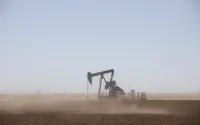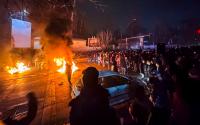5 April 2006Vikram Dodd
A military expert yesterday told an inquest that the death of a British journalist who was shot dead by an Israeli soldier was "calculated, cold-blooded murder".
James Miller, 34, was killed by a single shot in May 2003 in Gaza while making a documentary about the suffering of Palestinian children. No soldier has been disciplined or charged and in court the cameraman's family have accused Israel of a coverup, claiming there is evidence that his killer is Lieutenant Heib of the Israeli defence force.
The jury yesterday was told by Chris Cobb-Smith, who investigated Mr Miller's death, that the fatal shot was "deliberate" and not an accident. Mr Miller died as he and colleagues were trying to leave a Palestinian house at night, holding a white flag with a torch shone on it, clad in body armour and helmets with the letters "TV" written on it in fluorescent tape.
Mr Cobb-Smith, a former British army officer and UN weapons inspector, said Mr Miller and his colleagues would have been visible to the Israeli soldiers, who had night vision goggles. The sky was cloudless, the moon was shining and electric lights were shining from nearby houses. "My conclusion is this was calculated and cold-blooded murder, without a shadow of a doubt," Mr Cobb-Smith told the jury at St Pancras coroner's court in London.
The jury were again showed video of the shooting captured by another cameraman.
As Mr Miller and two colleagues approached an Israeli armoured personnel carrier shouting "Hello, we're British journalists," a shot rings out. Thirteen seconds later a second shot strikes Mr Miller, then a third bullet hits the house they have just left, with other shots spaced at five to 12-second intervals.
Mr Cobb-Smith said: "These shots were not fired by a soldier who was frightened, not fired by a soldier facing incoming fire; these were slow, deliberate, calculated and aimed shots."
The jury were played extracts from a 2003 BBC programme covering Mr Miller's death, in which his colleague, Dan Edge, told how the soldiers knew the group were journalists and had been talking to them earlier. Mr Edge said: "We know they knew we were there. They shouted to us two or three times in the evening."
The Israeli armoured personnel carrier was around 100 metres away and Mr Edge said: "I suddenly heard someone shouting 'How you doing', in Arabic, do you like pop music, do you like Fairuz, a Lebanese singer." Also in the documentary extracts played to the jury, reporter Saira Shah who was standing next to Mr Miller, suggested the soldiers may have been high: "They sounded like they were high, in very good spirits, whooping it up, maybe high on something." In her formal statement read to the inquest, Ms Shah said that after Mr Miller was pronounced dead, an Israeli officer who questioned her tried to suggest that a Palestinian gunman was responsible: "I was distressed at this process. I did not believe that they were objective in their questioning."
Annie McGuinness, a consultant in accident and emergency medicine, said Mr Miller stood little chance of survival once the bullet had hit him at the root of his neck at the front, severely damaging three main arteries. Ms McGuinness, from University College hospital, London, said the father of two young children would have lost one fifth of the blood in his body within a minute.
The inquest resumes tomorrow. The Israeli government has declined to take part, coroner Dr Andrew Reid has told the jury. In a statement, the Israeli embassy in London said: "After a very thorough investigation using laboratories in Israel and abroad and after reviewing all the available evidence, it was not possible to reach a reliable conclusion that could provide a basis for proceedings under criminal law."
http://www.guardian.co.uk/international/story/0,,1747139,00.html






